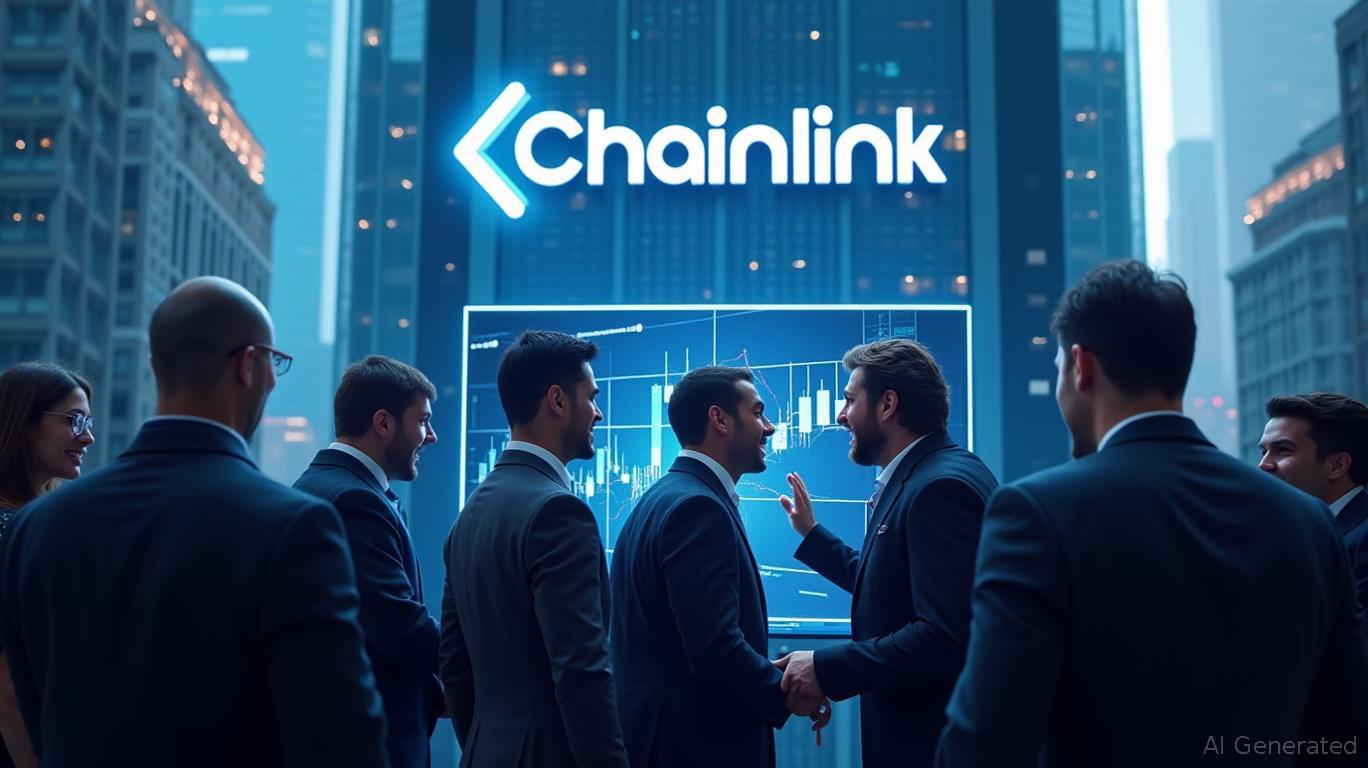Bitcoin Updates: Miners' AI Investments Fueled by Debt Could Trigger a Downturn Similar to 2022
- Bitcoin miners are leveraging $12.7B in debt to expand into AI/HPC, doubling down post-2024 halving as mining rewards halved to 3.125 BTC per block. - TeraWulf's $3.2B bond and IREN/CleanSpark's $1.3B raises highlight aggressive infrastructure upgrades, with AI contracts offering "predictable cash flows" against crypto volatility. - Risks escalate as TerraWulf's $250M annual interest exceeds 2024 revenue, echoing 2022's Core Scientific bankruptcy triggered by overleveraged hardware seizures. - Investors
Bitcoin mining companies are engaged in a fierce competition for supremacy following the 2024 halving, with many turning to debt-financed growth in artificial intelligence (AI) and high-performance computing (HPC) to transform the sector. Over the past year, the industry's total debt has soared from $2.1 billion to $12.7 billion, according to
The rapid accumulation of debt is largely due to miners upgrading their facilities and seeking to benefit from the booming AI sector. Companies such as

Nevertheless, this approach comes with considerable risks. TeraWulf’s latest debt carries a 7.75% interest rate, resulting in $250 million in yearly interest payments—far surpassing its 2024 revenue of $140 million, as noted in the CoinCentral analysis. The rising cost of borrowing, combined with execution challenges, has sparked doubts about long-term viability. The MinerMag cautions that while diversifying into AI and HPC reduces some crypto-specific threats, excessive leverage could lead to a repeat of the 2022 crisis, when Core Scientific declared bankruptcy after lenders repossessed underperforming mining equipment, as discussed in
On the other hand, investors are responding positively to these strategic changes. The CoinShares Bitcoin Mining ETF (WGMI) has climbed 160% so far this year, reflecting investor optimism for miners evolving into hybrid infrastructure providers, as mentioned in the CoinDesk report. TeraWulf’s share price alone has soared 170% in 2025, outpacing Bitcoin’s 10% increase, according to
Despite the optimism, some doubts remain. Matthew Sigel from VanEck warns that the "melting ice cube problem"—where outdated hardware causes miners to lose hashrate—remains unless there is ongoing investment, a concern raised by Cointelegraph. Miners are now under pressure to demonstrate that investments in AI infrastructure can be translated into revenue, while balancing the needs of both Bitcoin mining and high-margin computing services.
As competition for hashrate intensifies, the industry's future will depend on its ability to profit from AI resources without undermining Bitcoin’s network security. Although the current strategy seems to be yielding results, the road ahead is filled with both financial and operational hurdles, as emphasized by CoinCentral.
Disclaimer: The content of this article solely reflects the author's opinion and does not represent the platform in any capacity. This article is not intended to serve as a reference for making investment decisions.
You may also like
Ray Dalio Warns of Potential US Dollar Crisis
As NFT Transactions Decline, Institutional Actions Ignite a New Era of Utility
- NFT sales plummeted 42% to $93.18M weekly, with Pudgy Penguins dropping 76% to $3.8M. - Coinbase's $25M UpOnly NFT purchase triggered 7,900% UPONLY token surges, showcasing NFT utility beyond speculation. - Moonbirds' Soulbound Token (SBT) initiative and Ethereum's $35M weekly sales highlight evolving NFT functionality. - 57% institutional interest in tokenized assets signals market maturation, prioritizing utility over pure collectibles.

Cardano News Today: "Institutional Interest in Crypto Faces SEC Stalemate as T. Rowe Enters ETF Race"
- T. Rowe Price, a $1.8T asset manager, filed for an actively managed crypto ETF covering 5–15 coins including ADA, XRP, and SOL. - The SEC's 22-day government shutdown delays approvals, creating regulatory uncertainty for over 155 pending crypto ETF applications. - The ETF uses dynamic allocation strategies to diversify exposure, signaling growing institutional confidence despite market volatility. - Cardano's inclusion highlights rising institutional adoption, though mixed market dynamics show both optim

Chainlink Paves the Way for Wall Street Entry as Early Sales Spark the Next Crypto Surge
- Chainlink’s oracle networks gain Fed adoption, enabling secure blockchain integration for institutions. - BullZilla emerges as a high-potential presale, competing with AlphaPepe and OzakAI for investor attention. - Sallie Mae reaffirms 2025 guidance amid loan growth, while Oracle sees institutional interest in AI partnerships. - Market risks include regulatory scrutiny, economic uncertainty, and competitive pressures in presales.
